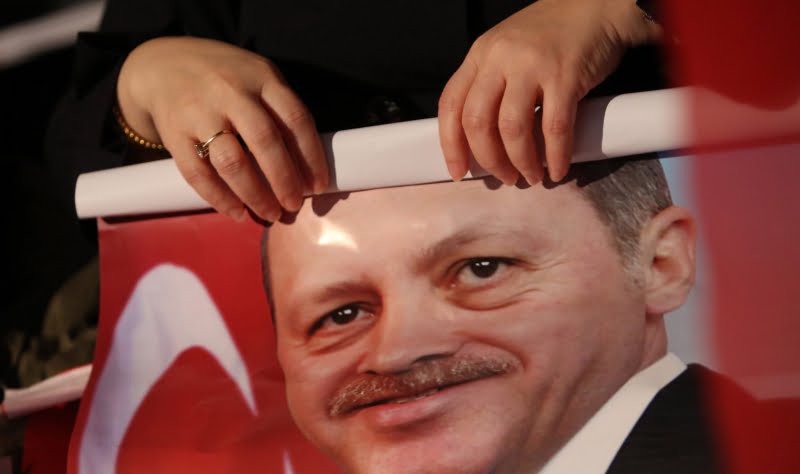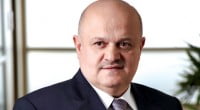Erdoğan Is Destroying Turkey’s Hopes for Democracy

Date posted: September 26, 2016
HILTON L. ROOT
Turkish President Recep Tayyip Erdoğan’s extra-legal roundup of scores of presumed supporters of the failed July 15 coup against his government is quickly taking its place in modern history alongside Stalin’s purges and China’s Cultural Revolution.
This — and Turkey’s demands that the U.S. turn over the cleric-in-exile Fethullah Gülen for trial on charges that include terrorism — further strains U.S.-Turkey relations. U.S. officials publicly stated that the spiral of repression weakens Erdoğan’s long-term security.
The arrest and detention of judges, mayors, teachers, military personnel, civil servants, journalists and political opponents deepens not only Turkey’s societal fault lines, but also global fault lines, separating Turkey from the West and bedeviling Western security policy for years to come. Turkey is one of just two Muslim-majority nations in the Middle East with a semblance of pro-Western democracy, making it pivotal to resolving the general crisis in the Middle East.
It may be in America’s interest to shape the fate of the Turkish regime — and to retain a military base within the republic, preserve access to Turkish airspace and guard entry to the Mediterranean from Russia — but the U.S. is not the decisive stakeholder. That role belongs to Europe. Indeed, American efforts to exert influence in Turkey could prove futile at best.
Erdoğan rose to power, first as mayor of Istanbul and later as leader of the AKP, in 2002 and 2007, respectively. He was an economic reformer at a time when Turkey was recognized as a candidate for accession to the EU. Championing greater access to health care, public housing, infrastructure and transportation, he used the state’s power to build a loyal base among the formerly disenfranchised voters from the Turkish hinterland while gaining their support for greater integration in the global economy.
Turkey was recognized as a candidate for accession to EU membership in 1999, but negotiations began to stall in October 2005. European reservations were twofold: First, the sovereign debt crisis emerging within Europe made the costs of integrating a poorer and larger neighbor more onerous, stifling resolve in the U.K., France and Germany. Second, the European Commission expressed concerns about Turkey’s failure to meet European standards of economic governance in such areas as public procurement and budgetary transparency.
By 2011, the Commission’s progress report cited breaches in Turkey’s compliance with judicial transparency and corruption controls, and requested additional reforms in Turkey’s political institutions. Turkish sources blamed the negotiations stalemate on European efforts to transform the EU into a “union of identity.” Negative popular sentiment in both Europe and Turkey influenced the political calculations of leaders in each, triggering a negative cycle in which disaffection with “Europeanization” within Turkey reinforced European recalcitrance.
Meanwhile, Europe’s declining economic prospects made EU membership less appealing and far less urgent for Turkey. The tragic result is that the lure of EU membership ceased to be a catalyst for further reforms.
By late 2013 a massive corruption scandal encircled the Erdoğan government. As the investigations led closer to the head of state and implicated members of his own family, Erdoğan focused his counter-attack on his former partner in forming the conservative movement, the Gülen Movement and its founder, Muhammed Fetullah Gülen.
As head of the largest and most influential religious organization in Turkey, Gülen’s backing was essential to Erdoğan’s rise to power. But Erdoğan turned on him, blaming him for instigating the investigation, and vowing revenge on his followers.
Now that his government and the Justice and Development party (AKP) are without the religious legitimacy that they derived from association with the popular preacher, Erdoğan has sought instead to portray the AKP as protector of the faith. The government’s latest strategy is to strengthen its cultural legitimacy by stressing its differences with the West.
It is essential for politicians in the West not to be distracted by this ploy to divert attention from the corruption eating away at the legitimacy of his government. Erdoğan acknowledges the state to be secular while the person is devout. He recognizes the folly of trying to create a new caliphate on the shores of the Bosporus. If Erdoğan shows one consistency of character, it’s that he is more concerned with maintaining public support than adhering to any ideology.
In Erdoğan’s Turkey, access to essential market opportunities and to the largesse of government contracts has been through channels operating at the discretion of political leadership. This has led Turkey’s political elites to rely on central control to produce social change and economic participation, but it also opens paths for private enrichment of government officials.
Western commentators lament that Erdoğan’s ongoing purge is eroding judicial and legislative autonomy, and pulling Turkey further from Europe. But the reality is that a self-regulating rule of law, an independent judiciary and a legislature that ensures accountability have never flourished in Turkey.
Enduring corruption at high levels has paved the way to the political impasse in which Turkey now finds itself. Corruption is both the source of the political crisis within Turkey and of Turkey’s estrangement from its neighbors to the West.
A dysfunctional Turkey that tears itself apart is not in the final best interest of Erdoğan, Turkey or the West. Only accession to the EU can change the narrative of how Turkey sees its future in the world. Erdoğan hurts Turkey when he suggests that it doesn’t need Europe or when he uses the flow of refugees as a bargaining chip.
Yet the fundamental impediment to real democracy in Turkey is the legacy of the strong state and it continues to be the underlying source of Turkey’s differences with the West.
Hilton Root teaches public policy at George Mason University’s Schar School of Policy and Government, is an affiliated senior scholar at the Mercatus Center, and authored “Dynamics Among Nations: The Evolution of Legitimacy and Development in Modern States” (MIT Press).
Source: The Fiscal Times , September 25, 2016
Tags: Defamation of Hizmet | Fethullah Gulen | Hizmet and politics | Military coups in Turkey | Turkey |
























